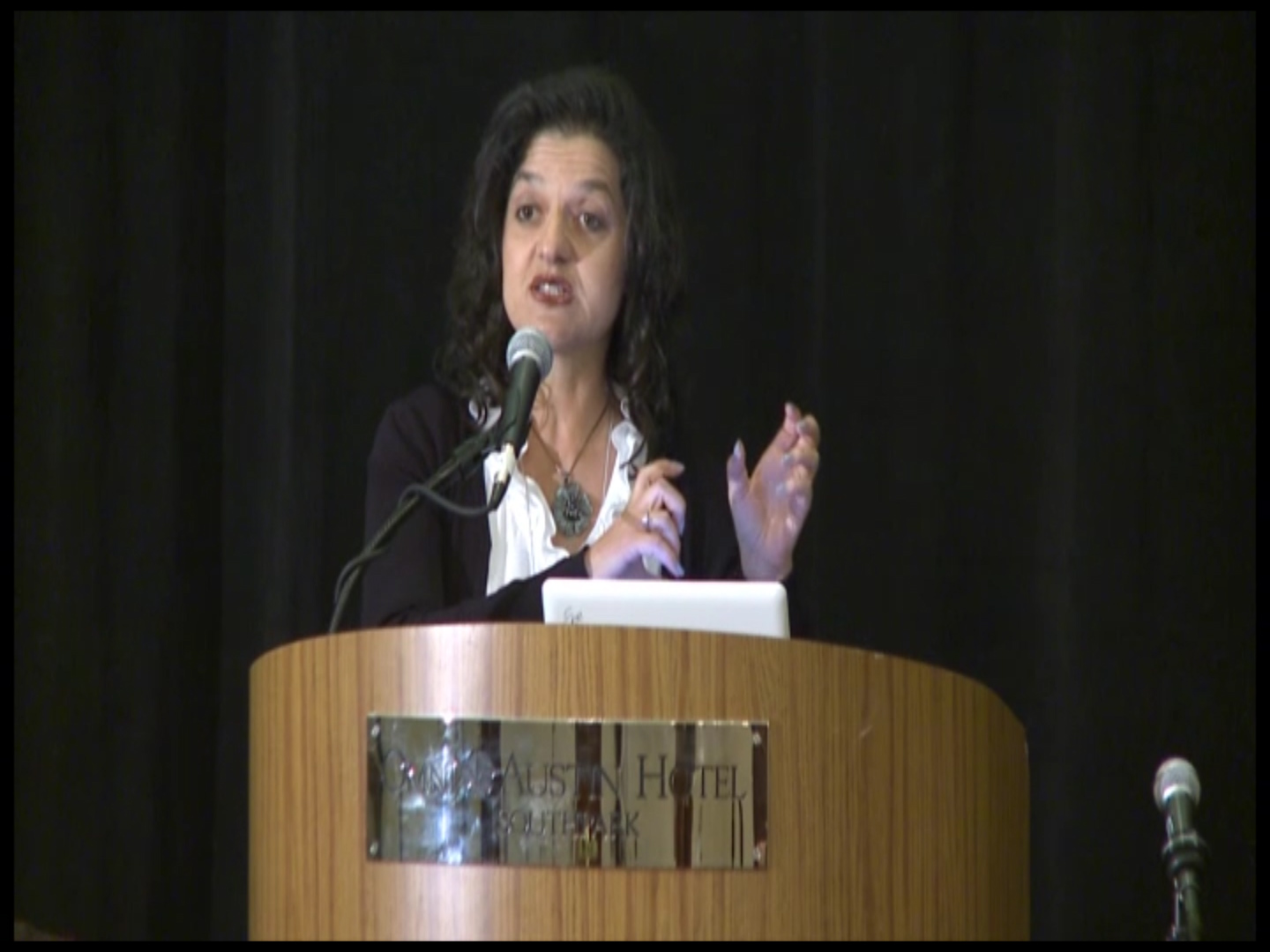Legacy IBL Conference 2012
Catalog (page 2)
Click on a title or image below to view
the video.
Videos will open in a new YouTube window.
Thursday June 14, Contibuted Papers in Parallel Sessions
Violeta Vasilevska, Utah Valley University
Active learning strategies
In this talk, I will discuss and what worked/did not work in implementing IBL in my Abstract Algebra Topology classes, and how the different class structures affected the implementation of this method. In addition, I will discuss various active learning strategies (modification from IBL), that I have frequently used in my classes and have been successful.
Brandy Comer, Chris Sams, and Kimberley Wesberry, Lamar University
The Moore Method Apprenticeship Program at Lamar University
Three students participated in Lamar University’s M2AP program at Lamar this year. After a brief overview of the program by one of the project investigators, the students will each describe their decision to return to graduate school and their experiences with the program after the completion of their first year.
Kelly Bubp, Gregory Foley, and Michael Smith, Ohio University
Connections between Mathematics Education Research and R. L. Moore’s Legacy
Recent research in mathematics education has delved into three areas of investiga tion that are at the heart of what makes the Moore Method an effective means for mathematical education: (a) engaging learners in cognitively demanding mathematic cal tasks, (b) promoting precise and high-level mathematical discourse in the class room, and (c) using ongoing assessment of mathematical understanding to advance student learning. This talk will report on research findings in these areas and illus trate how each of these is a major tent of the Moore method.
William Donnell, University of Texas - Pan America
Slip and Slide Method of Factoring Trinomials with Integer Coefficients over the Integers
In intermediate and college algebra courses there are a number of methods for factoring quadratic trinomials with integer coefficients over the integers. Some of these methods have been given names such as: Trial and Error, Reversing FOIL, AC Method, Middle Term Splitting Method, and Slip and Slide Method. The purposes of this short talk is to explain the Slip and Slide Method and propose a related Inquiry-Based Learning project.
Banning Lary
Distance Learning: IBL thrives in the Online Pedagogical Environment

Online education is not only the future, it is happening now. Brick-and-mortar facilities are expensive to build and can serve only a limited number of students. Extending a university’s reach via cyberspace is economical, practical and can deliver an equal if not better education. Online students are self-motivated and practice inquiry-based learning as a matter of course. Study is self-directed within clear cut curriculum guidelines. Gone are wasteful distractions of idle banter, attractive classmates and other cognitive annoyances. Students communicate entirely through the written word. Thoughtful online postings in discussion groups replace offhand classroom comments. Order, precision and efficiency characterize the online learning experience. Time is not wasted getting dressed, driving to class, parking, walking across campus only to spend a cursory hour with your professor among dozens or even hundreds of colleagues. Instead, those precious hours are applied to the course material. Interactions with the professor are direct and professional, delivered one-on-one in online postings. Students post their work which is reviewed by the other students who are graded not only on their postings but on their comments to other students. Should specific help be required, students are free to query the professor at any time for a quality response. This session will succinctly demonstrate the online classroom experience with projected visuals of computer screenshots.
Vilma Mesa and Tim Whittemore, University of Michigan
Concerns About Teaching Mathematics with IBL Methods

In this presentation, we report on our ongoing investigation into the concerns and challenges instructors report facing as they implement inquiry-based learning [IBL] methods in undergraduate mathematics courses. This study is part of a larger project that seeks to fill a gap in our knowledge about how mathematics faculty members new to teaching with IBL methods learn to use the method. For the last year, we have worked with a sample of 37 IBL instructors teaching at colleges and universities across the country. Using an online survey service, these instructors complete bi-weekly logs to report about the mathematics they are teaching, any concerns they have experienced about teaching, and their general reflections about the IBL method. We have worked to qualitatively analyze their responses and have identified a wide range of concerns instructors report experiencing. While some of these concerns address aspects not unique to IBL courses (e.g., concerns about students’ understanding or motivation), other address concerns that are particular to the IBL method (e.g., concerns about covering the necessary material, concerns about lecturing, concerns about facilitating class discussions). Instructors often include solutions they have found to their concerns, information on their use of resources (e.g., colleagues, course materials), and how these solutions and resources benefit their teaching.
Identifying the concerns instructors face and any solutions they may find to resolve these concerns can be useful to new instructors as well as to anyone working to support IBL instructors through mentoring programs and faculty development workshops. Future work includes collecting a new wave of data and analyzing how instructors’ concerns change over time as they gain familiarity with IBL methods.






